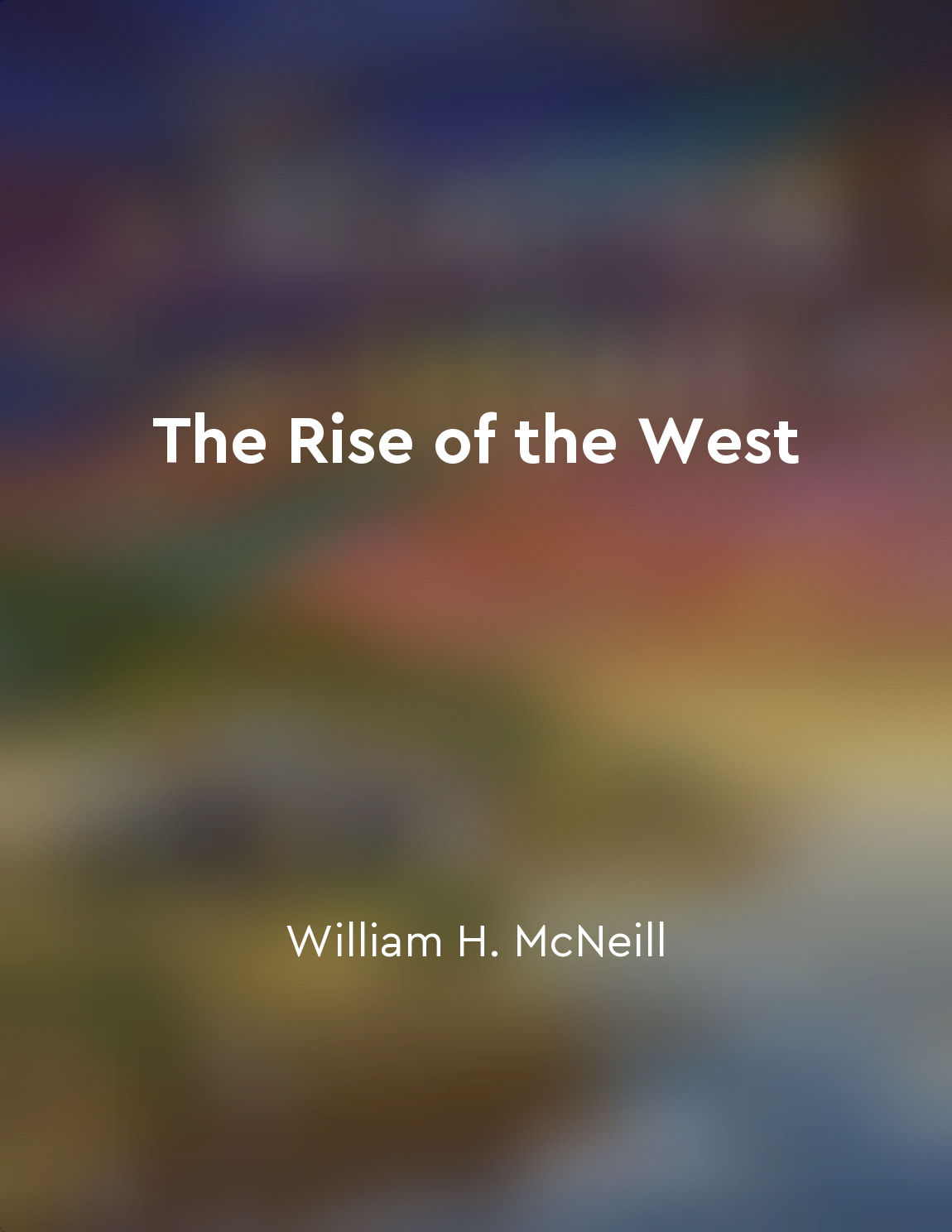Agricultural revolution transformed human lifestyles from "summary" of Foragers, Farmers, and Fossil Fuels by Ian Morris
The shift from foraging to farming was a turning point in human history, significantly altering the way people lived their lives. Before the Agricultural Revolution, foragers roamed in small bands, moving from place to place in search of food. Their lives were dictated by the availability of wild plants and animals, forcing them to constantly adapt to changing environments. With the advent of agriculture, humans learned to cultivate crops and domesticate animals, leading to settled communities and the development of complex societies. This shift allowed for a more reliable food supply, which in turn led to population growth and the establishment of permanent villages and towns. As people began to produce surplus food, they were able to specialize in different tasks, leading to the development of social classes and the division of labor. The Agricultural Revolution also brought about changes in technology and innovation. Humans began to use tools and implements to cultivate and harvest crops more efficiently, leading to increased productivity. This allowed for the expansion of trade networks and the development of more complex economic systems. Furthermore, the transition to farming had profound effects on social structures and relationships. As societies grew larger and more complex, new forms of governance emerged, leading to the rise of centralized states and empires. The ownership of land became a key source of power and wealth, leading to social stratification and inequality.- The Agricultural Revolution transformed human lifestyles in fundamental ways, shaping the course of history and laying the foundation for the modern world we live in today.
Similar Posts

Religious and philosophical beliefs influence societal values
Throughout history, the beliefs and philosophies of a society have played a crucial role in shaping its values and norms. Relig...
Agriculture allows for sedentary lifestyles
The shift from a nomadic lifestyle to a settled existence was made possible by the development of agriculture. With the ability...
Industrialization revolutionized the way goods were produced and consumed
The advent of industrialization marked a significant turning point in human history, fundamentally altering the way in which go...

The fragmentation of Western society
The fragmentation of Western society is a phenomenon that has been developing over the course of several centuries. It is chara...
Reflect on the lessons learned from history and their relevance to the present day
Throughout the annals of history, we are presented with a wealth of knowledge and wisdom that can guide us in navigating the co...
Industrialization is linked to access to resources
Industrialization is a process that involves the development of industries in a society, leading to increased production and ec...
The development of civilization has altered our instincts
The transformation of our instincts that has occurred over the course of civilization is a reflection of the profound impact th...
Empathy and understanding can combat xenophobia
It is crucial to acknowledge the power of empathy and understanding in our efforts to combat xenophobia. When we take the time ...

